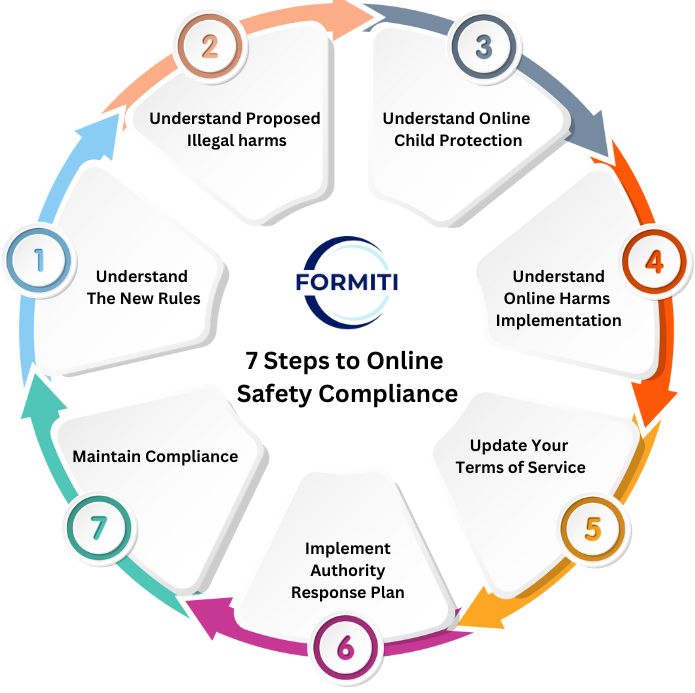Hey there, let’s talk about the UK Online Safety Act!
So, the UK Online Safety Act came into effect in 2023, and it’s a big deal for online service providers in the UK market. This Act aims to protect users, especially children, from online harms and holds service providers accountable for the content on their platforms. Let’s dive into the key elements of the Act and how online service providers can stay compliant.
1: Get to Know the New Rules
The UK Online Safety Act introduces a legal framework to make the internet safer. It requires online service providers to prevent illegal content and protect users from harm. Providers must conduct risk assessments, implement safeguards, and work with regulatory authorities. Key obligations include:
- Duty of Care: Providers must take steps to prevent users from encountering illegal content and harmful material.
- Transparency Reporting: Providers must regularly report to Ofcom on how they manage risks.
- Content Moderation: Providers need robust systems to identify and remove illegal content.
Understanding these rules is crucial for adapting policies to comply with the Act.
2: Know the Illegal Harms
The Act defines categories of “illegal harms” that online service providers must address, such as terrorism content, child sexual exploitation, hate speech, and fraudulent activity. Providers must have mechanisms in place to detect and remove such content.
3: Focus on Child Protection Online
The Act prioritizes child protection, requiring providers to safeguard children from harmful content. This includes age verification, content filtering, and educating young users about online safety.
4: Understand Ofcom’s Role
Ofcom has significant powers to enforce compliance under the Act. Providers should be prepared for audits, penalties for non-compliance, and content removal notices.
5: Update Your Terms of Service
Providers must update their terms of service to reflect new legal obligations, including clear policies on prohibited content, user responsibilities, and consequences for breaches.
6: Have a Response Plan
Providers need a plan to respond to requests from authorities promptly. This plan should include designated compliance officers, standard procedures, and training for staff.
7: Maintain Compliance
Compliance with the Act requires continuous monitoring and improvement. Providers should regularly review risk assessments, stay informed of regulatory changes, and engage with industry best practices.
In Conclusion
The UK Online Safety Act is a game-changer for online service providers. Compliance is key, and at Formiti Data Protection and Privacy Services, we’re here to help you navigate these regulations. Whether you need assistance with risk assessments, updating terms of service, or developing a compliance plan, we’ve got your back!



